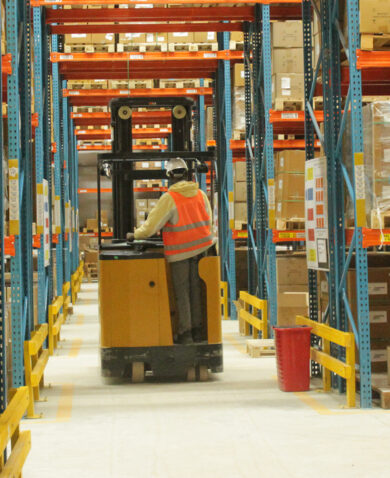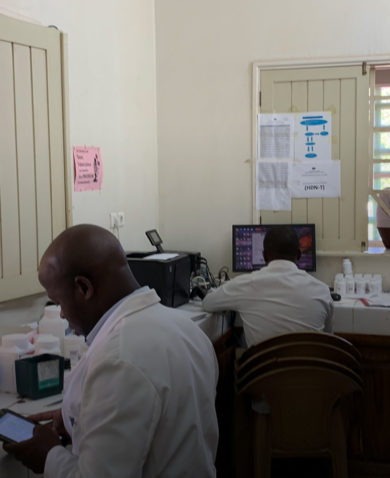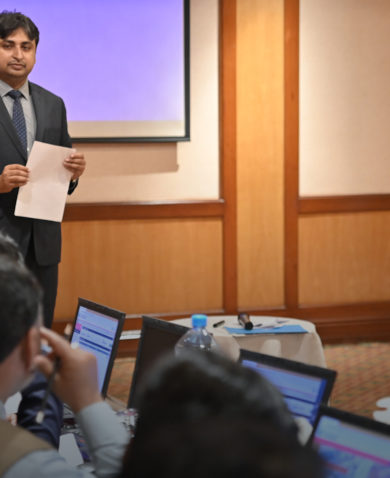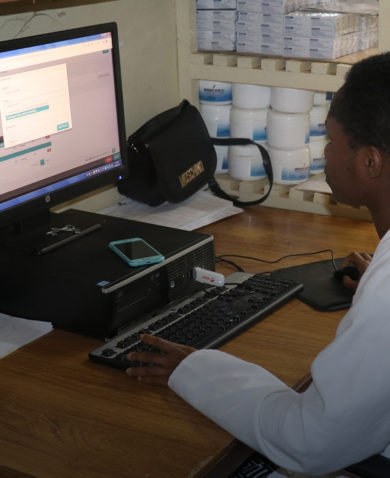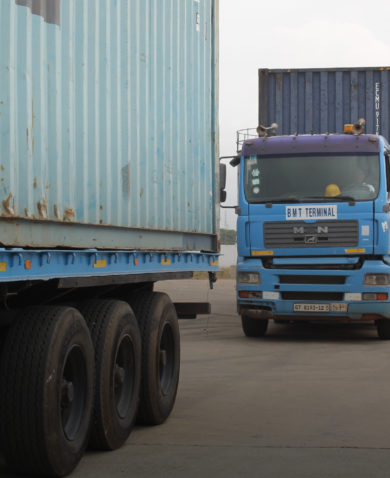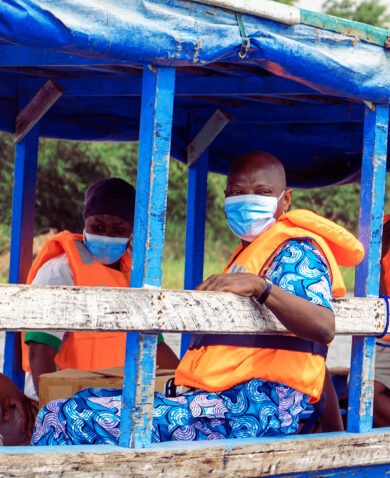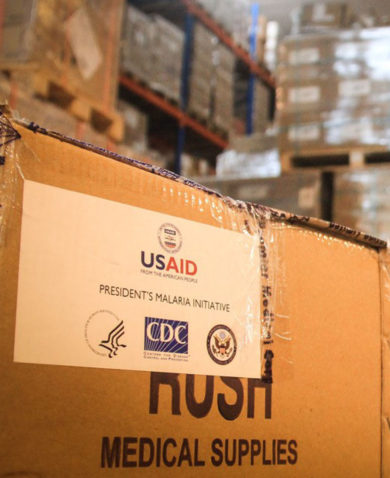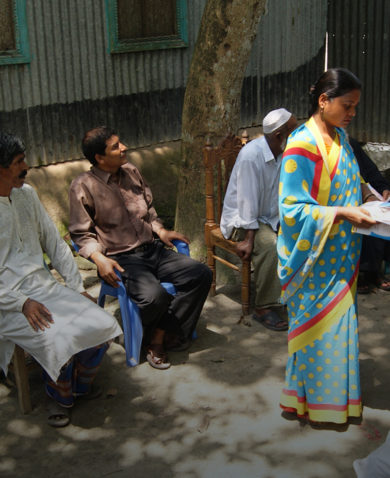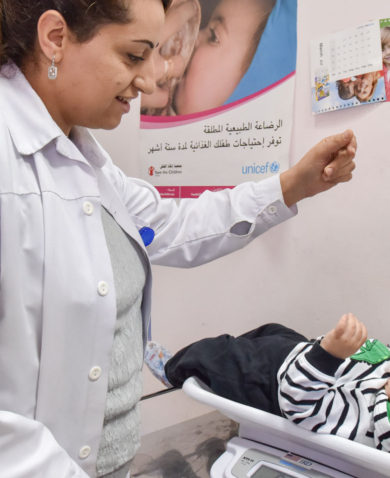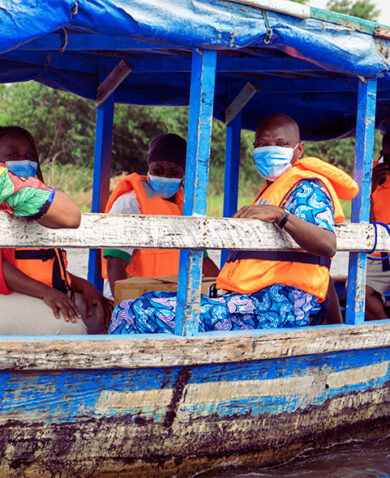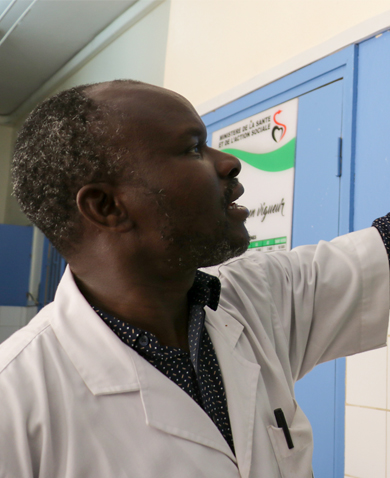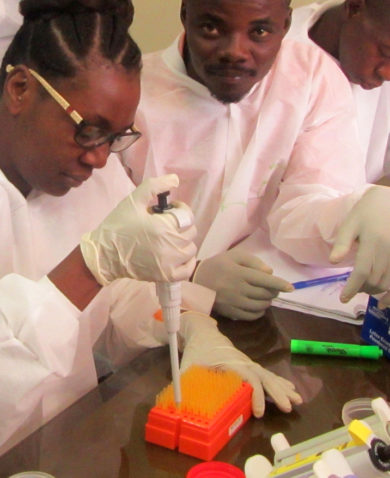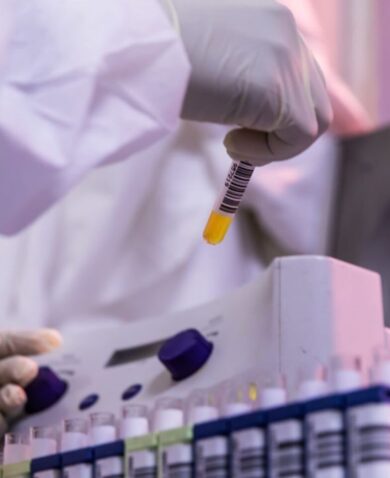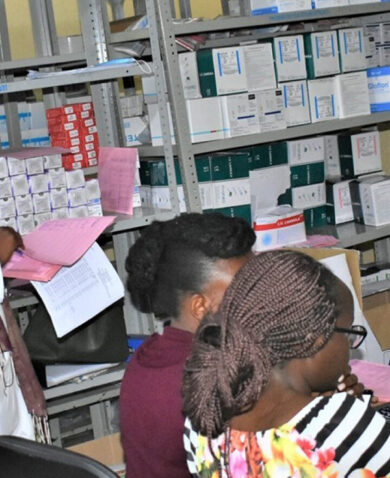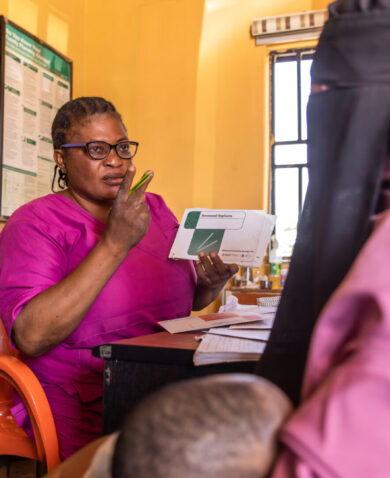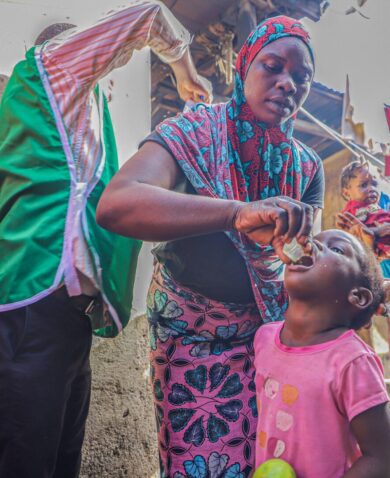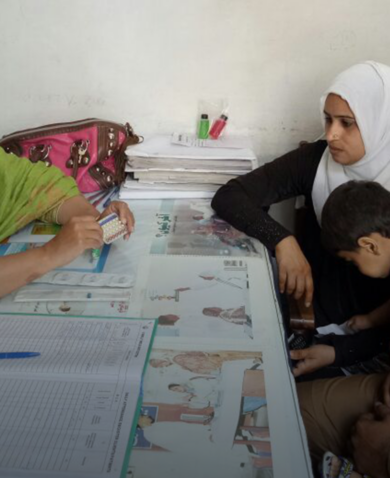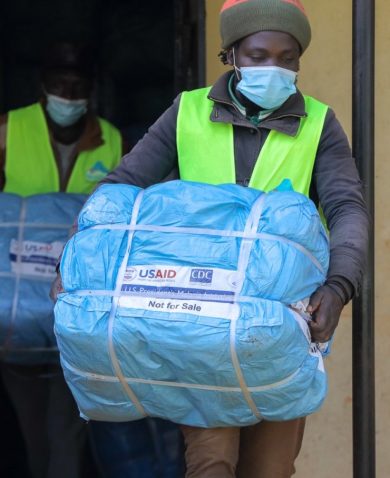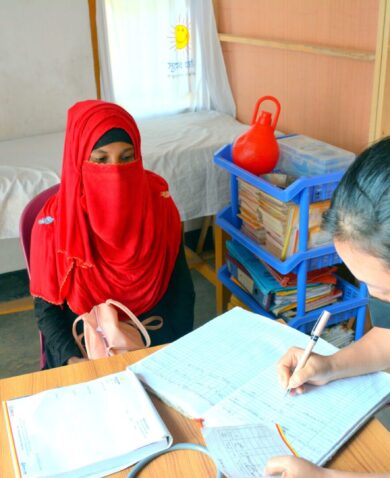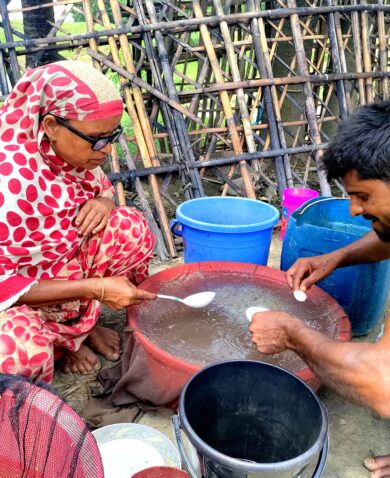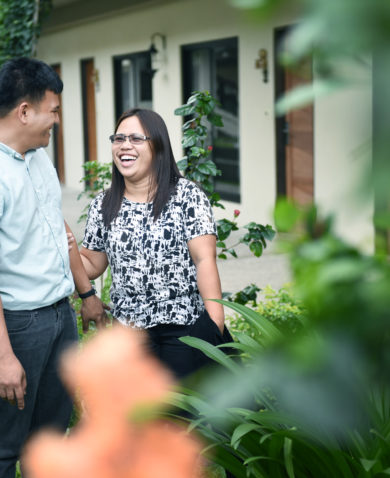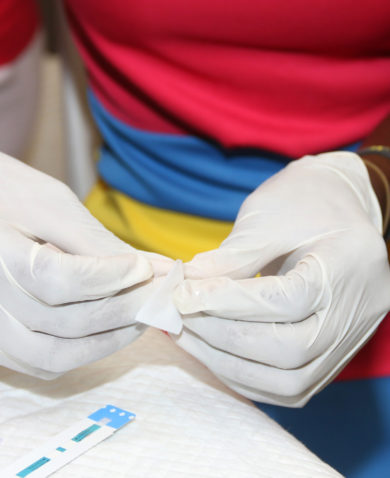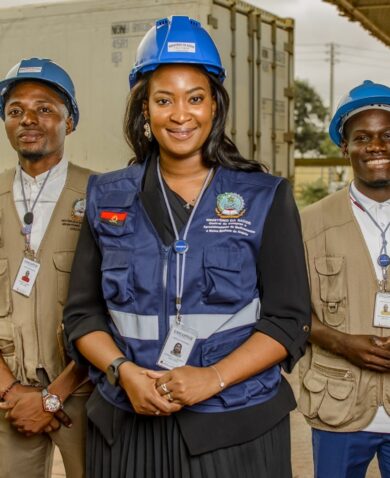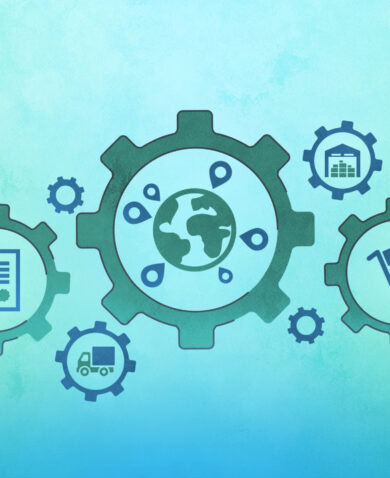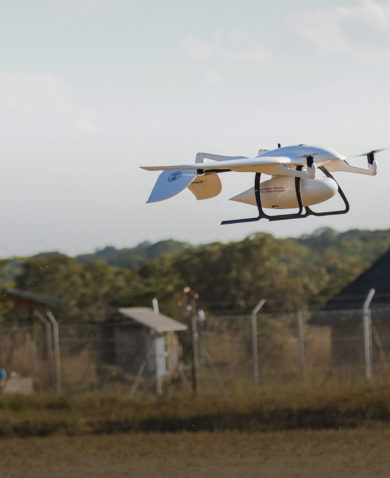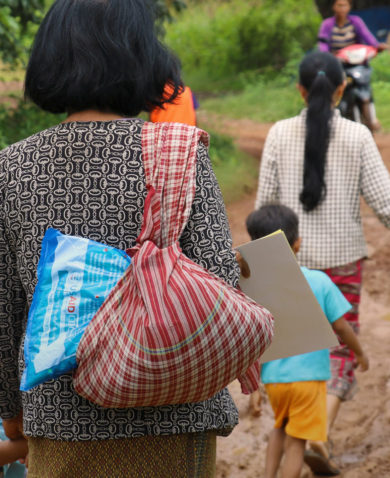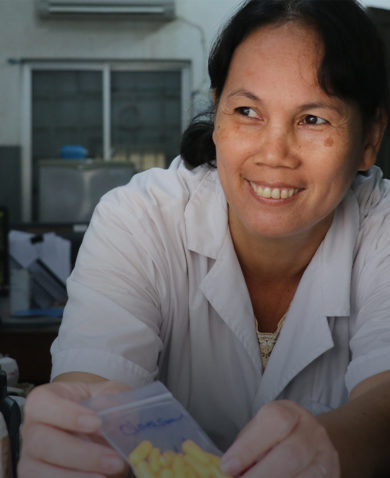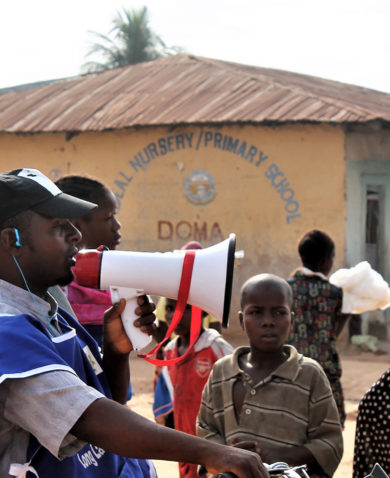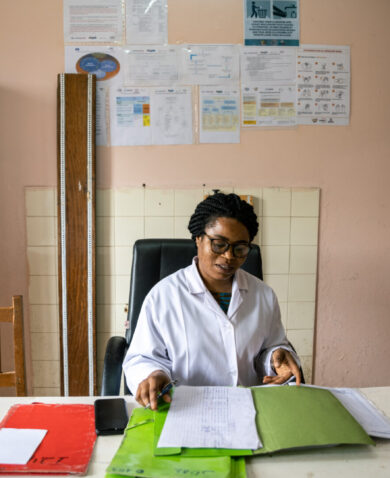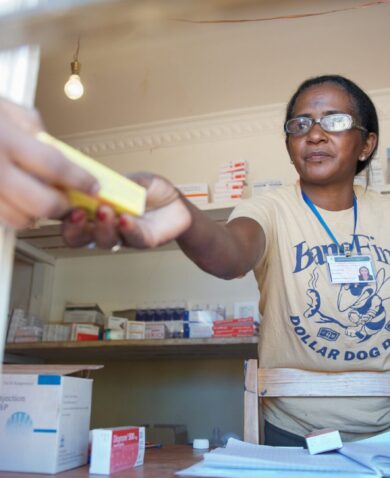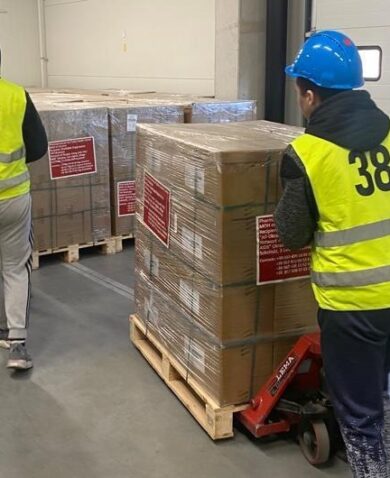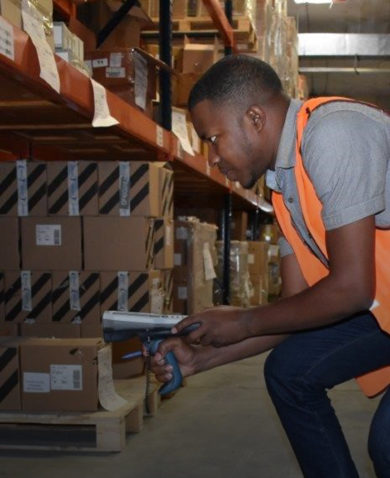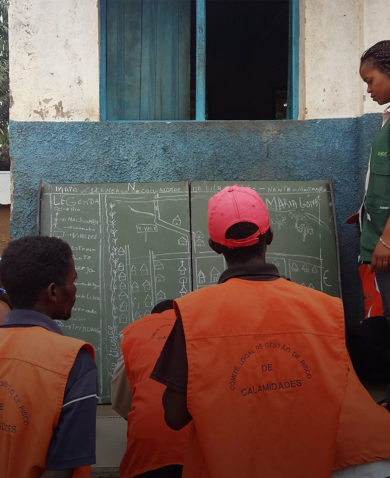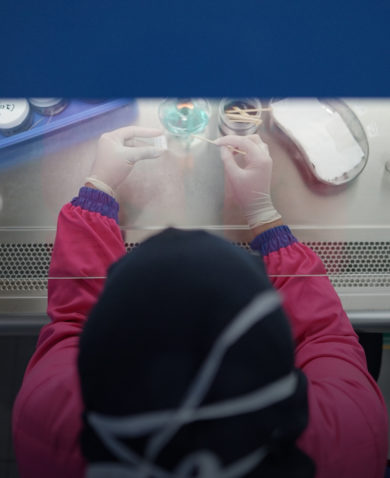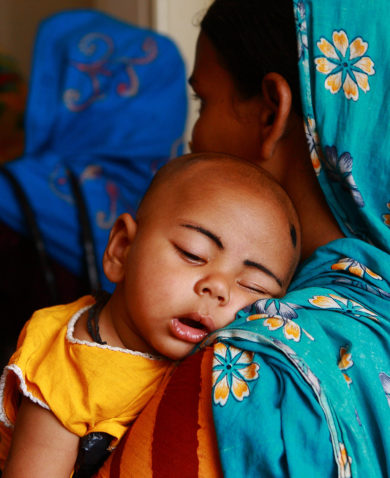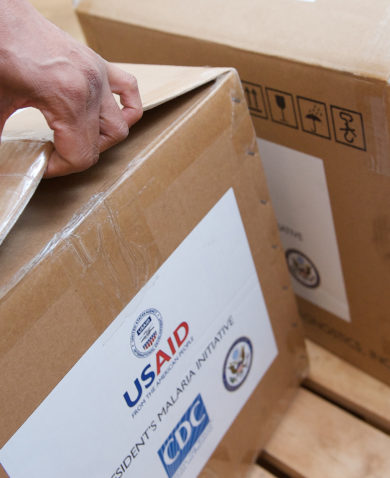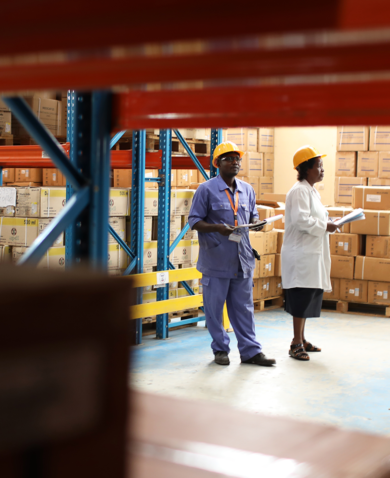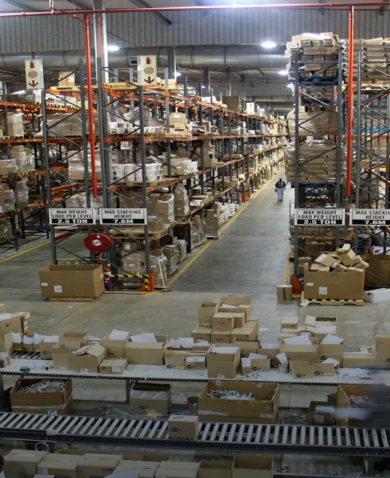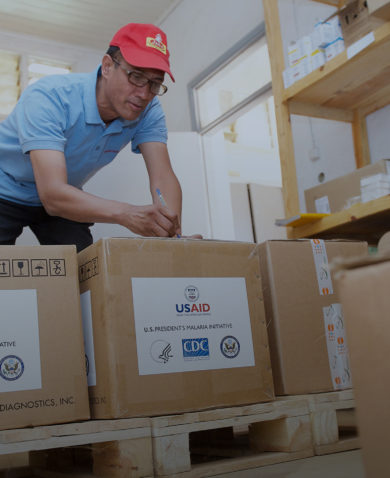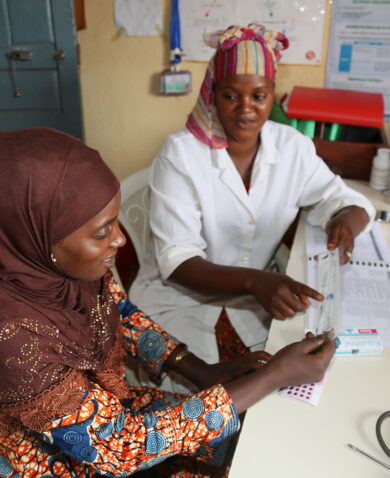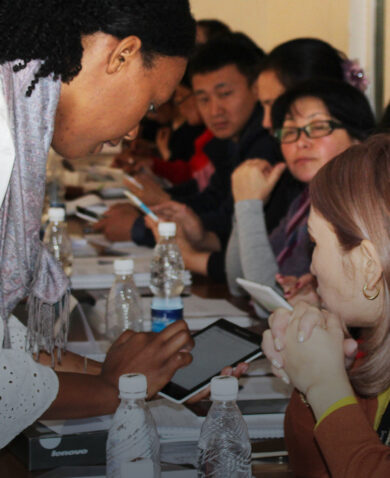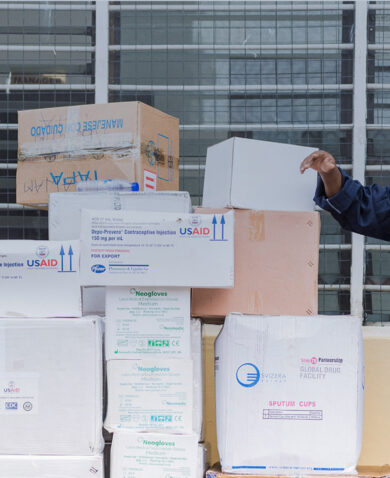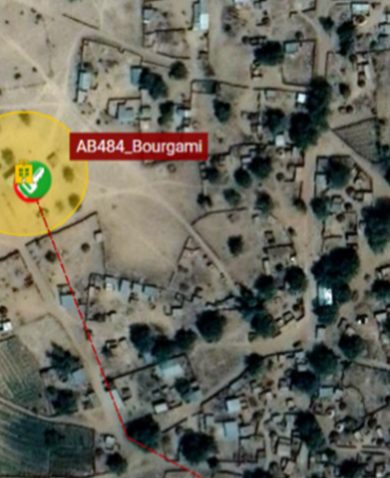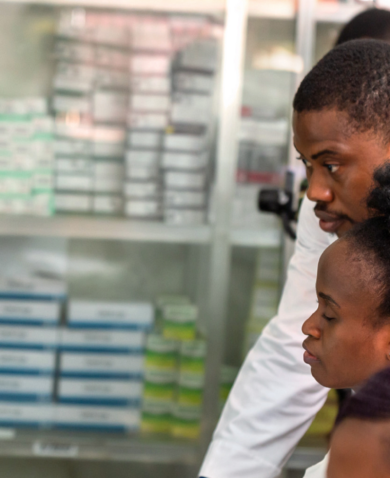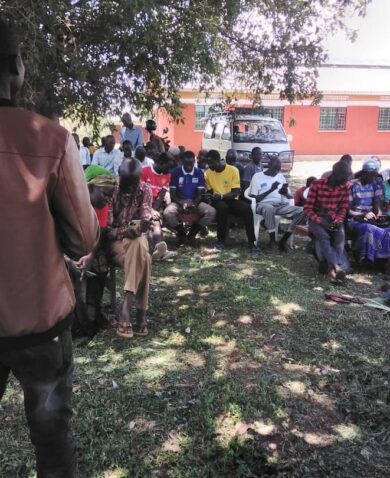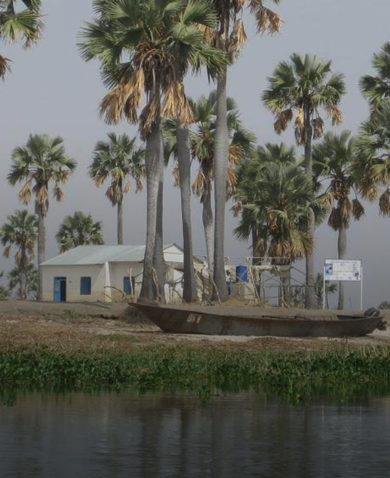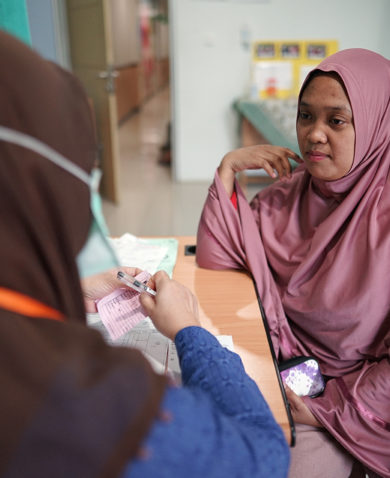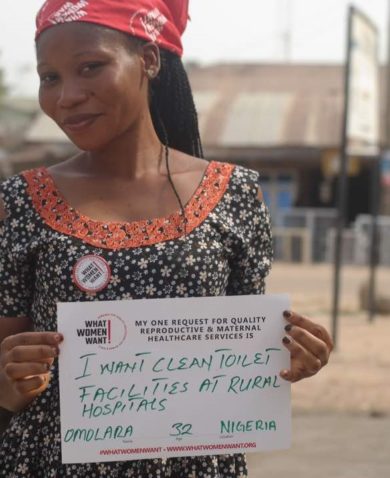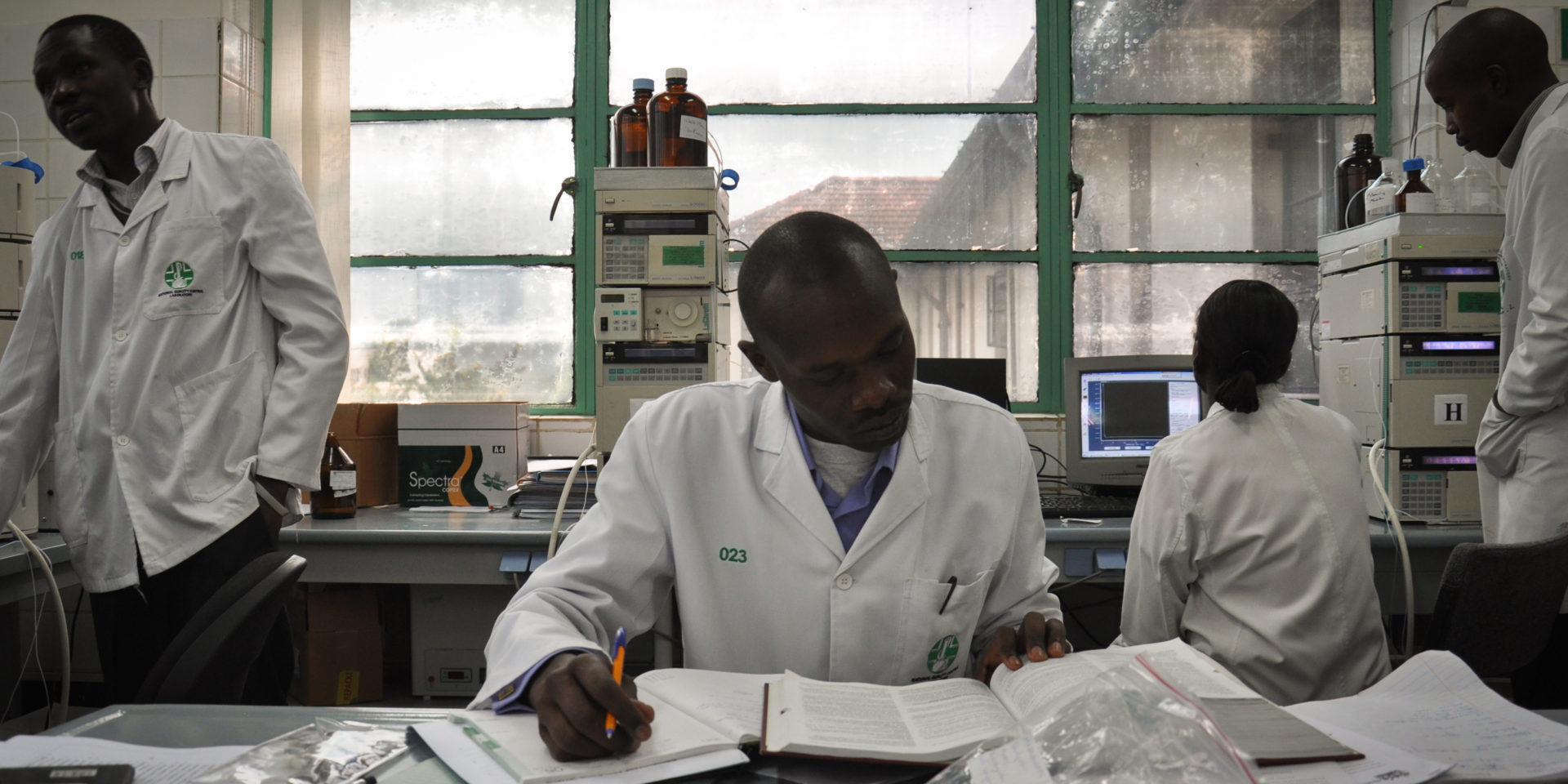
Three Technologies that Could Transform Health Supply Chains
November 10, 2016 | 4 Minute ReadAnthony Savelli discusses unmanned aerial vehicles, blockchain, mobile technology ahead of HESN TechCon.
In 2015, the United Nations ratified the Sustainable Development Goals, which include bold targets to eradicate poverty and deliver comprehensive healthcare worldwide by 2030. To achieve Goal 3, ensuring healthy lives and promoting well-being for all at all ages, reaching the largest segment of the world’s poor — the women, children, and men who live in rural environments — with medicines and medical supplies is critical.
Over the past ten years, the economies of many low- and middle-income countries have grown, and nations are assuming increased responsibility and accountability for managing regional and national health supply chains that serve the public good. Despite this progress, pervasive challenges that inhibit the secure and timely delivery of these health commodities in “last mile” resource settings still exist, ranging from poor infrastructure and inaccurate records to inadequate tracking and storage mechanisms. Employing key innovative services, products, and technologies to solve these challenges is top-of-mind for industry professionals. Chemonics has committed to accelerating progress in this area through its concentration on supply chain solutions, exploring concrete approaches through the implementation of USAID’s Global Health Supply Chain Program – Procurement and Supply Chain Management (GHSC-PSM) Project.
The USAID GHSC-PSM project aims to sustainably address supply chain challenges such as poor logistical systems design as well as inadequate data visibility, storage capacity, commodity financing, and human resources in order to eliminate HIV and AIDS, provide universal malaria coverage, and equip women and men to meet their family planning and reproductive needs. The project has opened 27 country offices to date, including Ghana, Lesotho, Malawi, Nigeria, and Pakistan. In these countries, having appropriate products in stock at district warehouses and reliably delivering them to where patients can be treated is often the greatest impediment to a successful supply chain — a link encumbered by inefficient supply chain design and systems, bad or nonexistent roads, and the absence of effective ways of pushing high-quality training to the most remote settings.
There is high demand for new technologies and systems to safeguard commodity access, like tracking delivery to the end user, ensuring adequate storage practices, dramatically improving forecasting, and monitoring these processes from a distance. At this week’s U.S. Global Development Lab’s Higher Education Solutions Network (HESN) Technical Convening (TechCon), Chemonics and Arizona State University will co-host a panel highlighting three private sector organizations that are leading the charge on applying innovative technologies for sustainable impact at the last mile.
Transformative technologies: blockchain, mobile systems, and unmanned aerial vehicles
BanQu is the first-ever blockchain economic identity technology platform and network (patent pending). Best known as the technology underlying the digital currency bitcoin, blockchain is a digital ledger that enables users to transfer digital assets cheaply, safely, and transparently without having to rely on a traditional intermediary, such as a bank, to verify or execute transactions. The technology can also be used to enable the secure and immutable creation of economic opportunities for refugees and other impoverished populations around the world by generating a shareable digital ledger of their financial transactions. Based on the dual principle and guarantee of “dignity through identity,” BanQu advocates for positioning these populations as customers rather than beneficiaries. This shift produces sustainable responsiveness through a long-term solution that treats the root “demand” in conflict- and poverty-stricken areas. In the case of last mile health supply chains, blockchain improves end-to-end effectiveness for the patient and the provider. For example, BanQu can enable a “smart contract” that releases funds to the drug manufacturer for a malaria vaccine, pays the state health worker instantly, and reduces inventory costs and losses simultaneously as soon as the patient in need receives their vaccine.
Dimagi builds mobile systems for the last mile, operating on the belief that disseminating quality mobile solutions at scale can impact millions of people’s lives by transforming front line programs’ ability to deliver high-value services to low-resource areas. Active in more than sixty countries, Dimagi’s technology platform CommCare and other services have supported over 500 projects and hundreds of partners, including the United Nations, the Bill & Melinda Gates Foundation, USAID, Harvard, and MIT. The tool is a free open-source mobile platform that enables anyone to build apps, and is currently the most widely adopted, evidence-based mobile platform for low-resource settings. A tool like CommCare enables accurate data collection and communication across the supply chain, and can monitor field worker activities and track end users.
WeRobotics scales the impact of social good programs globally by connecting national-level stakeholders with appropriate robotics technologies. One of their key areas of innovation involves delivery of essential commodities, particularly in health, through networks of semi-autonomous unmanned aerial vehicles (UAVs). They do this in collaboration with technology partners like Vayu, Quantum Systems, and UAVAid, and implementation partners including Remote Area Medical in the Philippines and parts of the Ministry of Health in Peru. WeRobotics sustains these applications through Flying Labs, which develop local capabilities in robotics for good, implement collaborative projects, and start up new enterprises in order to cultivate the robotics for social good ecosystem in the cities and countries where the labs operate. Currently, labs are active in Peru, Nepal, and Tanzania with scoping underway in more than ten locations across Latin America, sub-Saharan Africa, and South Asia.
Thinking forward
UAVs, mobile management systems, and blockchain are three examples of possible world-class technologies and services that can strengthen health commodity supply chains from end to end. But how might these technologies be applied together for maximum impact? At TechCon, participants will be led through a sample case and will brainstorm and propose their own solutions to a real world problem at the last mile. While implementing a supply chain project in a low-resource and low-visibility area, how might these technologies be used to ensure effective last mile delivery? What challenges might arise in the implementation of the technologies themselves, and what might solutions to these challenges look like? Considering the ways in which the expertise of BanQu, Dimagi, and WeRobotics could overlap is an opportunity to think ahead when it comes to solving today’s most persistent development challenges.

